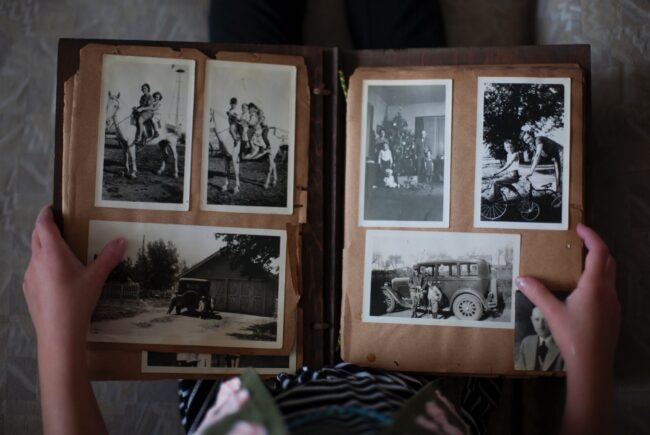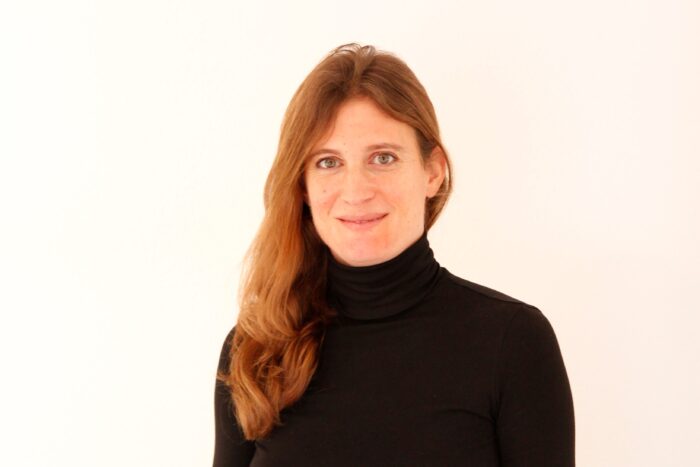

We talked to Professor Aline Sierp about better acknowledging the way collective memories shape our views, politics – and even the ongoing war in Ukraine.
How do we represent the past to ourselves and to others? How is memory shaped, discussed and used? What can examining different views of remembering teach us?
The recently burgeoning field of memory studies examines memory in a broad way and from a variety of disciplinary perspectives. It is also closely linked to learning – the narratives we hold about the past deeply shape our ideas about the world and its potential.
We talked to Aline Sierp, Associate Professor in European Studies at Maastricht University specialising in collective memory, questions of identity and European integration.
Why is it important that we discuss shared memory and how it is shaped?
Memory is everywhere around us! Firstly, I think it is useful to make the distinction between history and memory. Memory can be viewed as the re-elaboration of the past by different people, different institutions or whole communities or cultures. So, it not so much about what actually happened in the past, but what is being told about the past.
On the one hand, memory is this very private thing, but it is also very much a shared process that connects us all. That is why memory can easily become a political tool and even abused to certain extent.
Aline Sierp:
- Associate Professor in European Studies at Maastricht University. Her research interests cover collective memory, questions of identity and European integration.
- Has worked as a researcher at the Dachau Concentration Camp Memorial Site where she was responsible for human rights education at the international office.
- Is the co-founder and co-president of the Memory Studies Association and the Council of European Studies’ Research Network on Transnational Memory and Identity in Europe.
- Is co-editor of the Berghahn Book Series Worlds of Memory.
I am a political scientist and historian, so I am particularly interested in political memory. You can investigate political memory by looking at commemorations, public speeches and the media, for example, to see how public institutions are dealing with the past.
You have specialised in questions of identity and European integration. What role does memory play in the current crisis in Europe?
Putin is obviously harnessing different stories told about the past to justify his war on Ukraine and to sell it to the Russians. Putin’s vision about Russia is very closely linked to memories of this glorious, Russian empire that he would now like to return to.
The reaction of the European Union is also very much affected by dealing with past experiences. There are many references to World War I and World War II in justifying decisions and in analysing what comes next.
We need more discussion, sharing memories and trying to understand why our memories might differ from one another.
Remembering contrary to the “approved” narrative is currently seen as a threat to the Russian state. Several attempts have been made to close down the biggest Russian memory organisation, Memorial, and its funding has been withdrawn. My own organisation, the Memory Studies Association, was blacklisted by Russia, so our members from Russia can no longer access our website.
When the war started, we initially started a rescue programme for Ukrainian scholars at risk. We then realised we should also include Russian scholars. Many of them have fled the country and are not able to return as they are seen as dissidents.
You have also worked as a researcher at the Dachau Concentration Camp Memorial Site. How has this affected the way you view the world?
When we talk about the Holocaust, it is important to look not only at what happened, but the reasons behind it. What was happening in society beforehand? Why did no one say anything?
Unfortunately, the Holocaust was not the first or last time something this cruel happened. Discussing what made this or any other historical event possible will also help people in the modern world relate to it. Particularly for young people or children, teaching about the Holocaust can be connected to themes such as exclusion or bullying – things they have a connection to in their own lives.

Aline Sierp is Associate Professor in European Studies at Maastricht University. Her research interests cover collective memory, questions of identity and European integration.
Besides the horrors of the Holocaust, I think we also need to talk about the few stories of courage taking place, people helping others and being incredibly resilient. I think that can help us learn from the past.
Do you think memory could be used as a tool in education more?
In higher education, memory studies have actually become quite popular in the past few years, and they are now acknowledged as their own field. In high school, I think, it very much depends on the individual teacher, and the curriculum is generally more focused on history than memory.
Outside the formal education sector, however, many organisations are very active in the field of memory and education; often the main target group is young people. When it comes to lifelong learning and adult education, there might, however, be a gap.
This is a question of information as well – many people might not know about the organisations already doing some very interesting work. The European Observatory of Memories, for example, has many projects aiming to increase understanding of the various narratives people are exposed to in terms of the current war in Ukraine.
How can we learn to use memory in more responsible and constructive ways in the future?
I think the only way forward is exchange between the different narratives. We need more discussion, sharing memories and trying to understand why our memories might differ from one another.
If there was more understanding of the power of memories, it would be much more difficult to abuse them. To a certain extent, this is already happening – there are initiatives at the European Commission aimed at funding grassroots initiatives around collective memory such as the ‘Europe for Citizens’ programme, which has now turned into the programme on “Citizens, Equality, Rights and Values“.
Aline Sierp is one of the panelists of the Education, Community and Memory discussion at the EPALE Community Conference 2022. Elm and our publisher, the Kvs Foundation, will be hosting a collective screening of the discussion in Helsinki on 18 October 2022.
Author







